Hotel Attention

What makes a hotel considered a "luxury" experience ?
**What Makes a Hotel Considered a "Luxury" Experience?** A luxury hotel experience is defined by several key factors that set it apart from standard accommodations. These factors are often the result of meticulous attention to detail, exceptional service, and the incorporation of high-end amenities and features. Let's delve into the specifics of what makes a hotel considered luxurious: 1\. Exceptional Service: Personalized attention, professionalism, and courtesy are paramount. This includes butler services, anticipatory service, 24/7 concierge, polite and efficient staff, and multilingual capabilities. 2\. High-Quality Accommodations: The focus is on comfort and elegance. Room amenities include premium bedding, luxurious toiletries, and advanced in-room technology. Design and decor are tasteful, with spacious layouts. 3\. Exclusive Amenities: On-site facilities like fine dining restaurants, full-service spas, and state-of-the-art fitness centers set these hotels apart. Special features such as infinity pools and private beaches or pools add to the indulgence. 4\. Unique Experiences: Bespoke activities and extraordinary events make each stay memorable. Customized excursions and cultural immersion opportunities cater to individual interests. 5\. Location and Accessibility: Prime locations in iconic settings or with easy accessibility to major attractions define luxury hotels. Privacy and security measures ensure guest safety and peace of mind. 6\. Attention to Detail: Consistency in quality, environmental considerations, and thoughtful touches elevate the luxury experience. Immaculate cleanliness, sustainability practices, and personalized services make each stay exceptional. In summary, a luxury hotel experience is characterized by superior service, elegant accommodations, exclusive amenities, unique experiences, prime locations, and consistent attention to detail. It's about creating an environment where guests feel pampered and catered to at every turn, making their stay memorable and exceeding their expectations.
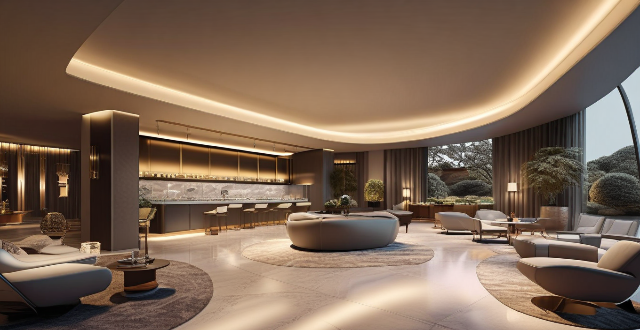
What amenities should I expect from a 5-star luxury hotel ?
When you stay at a 5-star luxury hotel, you can expect amenities like spacious and elegant rooms with high-quality linens, luxurious bathrooms, complimentary high-speed Wi-Fi, in-room entertainment systems, gourmet restaurants, bars and lounges, 24/7 room service, state-of-the-art fitness centers, full-service spas, heated indoor and outdoor swimming pools, technologically advanced meeting rooms and ballrooms, personalized concierge services, same-day laundry and dry cleaning, turndown service, in-room safes, luggage storage, valet parking, and bellhop services.

How can women deal with sexual harassment or unwanted attention while traveling ?
Dealing with Sexual Harassment or Unwanted Attention While Traveling: - Be Aware of Your Surroundings - Dress Appropriately - Use Body Language - Learn Key Phrases in the Local Language - Keep Your Belongings Close - Stay in Groups - Trust Your Instincts - Seek Help When Needed - Document the Incident - Report Incidents When Appropriate
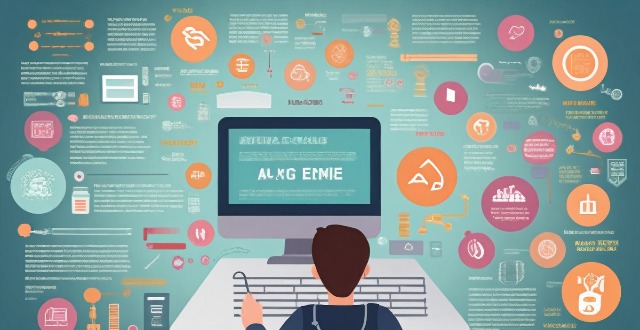
Is there a link between screen time and decreased attention span ?
In the digital age, excessive screen time has been linked to decreased attention span. Studies show that prolonged exposure to screens can lead to reduced ability to focus, shortened attention span, and impaired memory retention. The relationship between screen time and attention span can be understood through mechanisms such as dopamine release, fragmented attention, disrupted sleep patterns, and reduced physical activity. Research findings support these claims, with studies showing that children and college students who spend more time on screens have shorter attention spans and lower academic performance. However, there are ways to mitigate these effects by setting limits on screen time, practicing mindful usage, taking breaks, engaging in physical activity, and prioritizing sleep. By being mindful of our screen habits and taking steps to mitigate their impact, we can maintain healthy attention spans and overall cognitive well-being.

Is there a connection between multitasking and reduced attention span ?
The article discusses the potential negative impact of multitasking on attention span and suggests strategies to improve focus and productivity. The main points are: 1. Multitasking can lead to divided attention, overloaded cognitive resources, and habituation to short-term stimuli, all of which can reduce attention span. 2. To improve attention span, it is recommended to prioritize tasks, take breaks, and minimize distractions. 3. By implementing these strategies, individuals can enhance their ability to focus and maintain attention on important tasks.
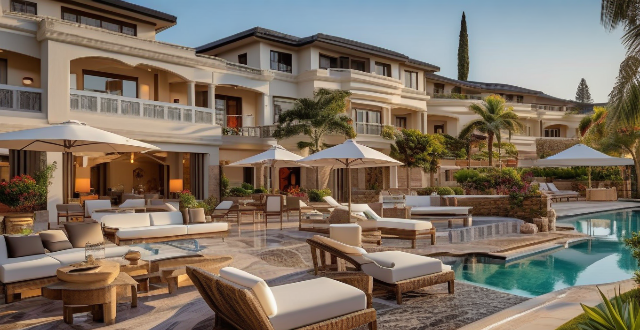
What are the benefits of staying at a small, boutique luxury hotel versus a larger chain resort ?
Staying at a small, boutique luxury hotel offers several advantages compared to a larger chain resort, including personalized service, unique ambiance, a quieter environment, local flavor, and exclusivity.

How can I save money on accommodation while traveling ?
Saving money on accommodation while traveling requires careful planning and research. Here are some tips: 1. **Choose Budget-Friendly Options** such as hostels, guesthouses, and budget hotels. Consider staying in a vacation rental or apartment for longer stays. Pros include lower cost, opportunities to meet other travelers, and often central locations. Cons may be lack of certain amenities, noisy or crowded conditions, and varying quality. 2. **Travel Off-Peak** to take advantage of lower rates during off-peak seasons or midweek. Pros include lower rates, fewer crowds, and easier access to deals and discounts. Cons may be limited hours at attractions, less than ideal weather, and limited availability of certain accommodation types. 3. **Negotiate and Look for Deals** by contacting hotel staff or searching online for discounts. Pros include potential savings on already discounted rates, exclusive promotions, and the ability to customize your stay. Cons may require flexibility in travel dates and destinations, restrictions or blackout dates on deals, and varying quality of rooms and services. 4. **Use Loyalty Programs** offered by hotel chains or booking sites to earn points for free nights or upgrades. Pros include earning rewards for future stays, exclusive member rates and benefits, and the possibility of room upgrades and other perks. Cons may require multiple stays to accumulate enough points, rewards may have expiration dates or restrictions, and some programs may charge fees or have complex rules.

What are the most child-friendly hotels or resorts for a family trip ?
When planning a family trip, it's important to choose accommodations that cater to the needs of both adults and children. Some of the most child-friendly hotels or resorts for a family trip include Club Med Resorts, Disney Resorts, Beaches Resorts, Great Wolf Lodge, Aulani, A Disney Resort & Spa, and Four Seasons Resorts. These properties offer amenities such as kid-friendly pools, water parks, supervised clubs, and cultural experiences. When choosing a hotel or resort for your family trip, consider factors such as location, amenities, activities, and overall atmosphere. Look for properties that offer supervised kids' clubs, family-friendly restaurants, and opportunities for both parents and children to relax and have fun together.
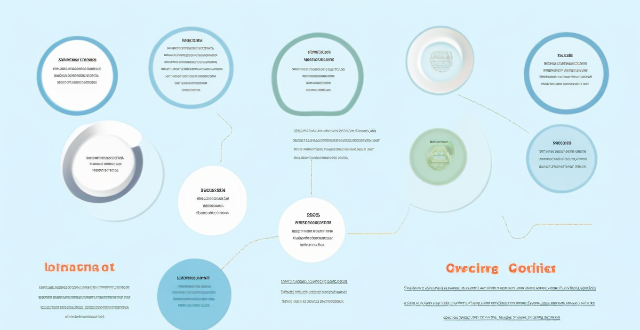
How can I improve my chances of winning an academic competition ?
To improve your chances of winning an academic competition, focus on understanding the rules and criteria, researching past winners, developing a strong research plan, creating a well-structured outline, writing clearly and concisely, practicing presentation skills if applicable, seeking feedback from peers or mentors, paying attention to details, and meeting deadlines. Consistency, dedication, and attention to detail are key factors in achieving success.

What are some essential travel safety tips for international tourists ?
Traveling to a foreign country can be an exciting adventure, but it's important to prioritize safety during your journey. Here are some essential travel safety tips for international tourists: ## Research Your Destination Before embarking on your trip, research the destination thoroughly. Familiarize yourself with local customs, laws, and cultural norms. This will help you avoid any misunderstandings or unintentional offenses that could put you in harm's way. ### Learn Basic Phrases in the Local Language Knowing how to say simple phrases like "hello," "goodbye," "thank you," and "I don't understand" in the local language can go a long way in helping you communicate with locals and navigate your way around. ### Check the Weather Forecast Be prepared for any weather conditions by checking the forecast before you leave. Pack appropriate clothing and gear to ensure your comfort and safety throughout your trip. ## Stay Informed About Safety Concerns Stay up-to-date on any safety concerns or travel warnings related to your destination. The U.S. Department of State maintains a website with current information on safety issues and advisories for travelers. ### Register With Your Embassy or Consulate Register your travel plans with your embassy or consulate so they can contact you in case of an emergency or natural disaster. This is especially important if you plan to visit remote areas where communication might be limited. ## Be Cautious With Your Belongings When traveling abroad, it's crucial to take precautions to protect your belongings from theft or loss. Here are some tips to keep your valuables safe: ### Keep Your Valuables Close at Hand Carry only what you need when sightseeing or exploring new places. Keep your passport, cash, credit cards, and other valuables secure in a money belt or hidden pocket. ### Use Hotel Safes Wisely Hotel safes are convenient for storing valuable items while you're out and about. However, be aware that not all hotel safes are foolproof. Some may have vulnerabilities that could allow thieves to access your belongings. Always exercise caution when using hotel safes and consider bringing along a portable lock for added security. ### Be Mindful of Your Surroundings Stay alert and aware of your surroundings at all times. Avoid displaying expensive jewelry or electronics in public places, as these items can attract unwanted attention from pickpockets and thieves. If possible, try to blend in with the local crowd by dressing conservatively and avoiding flashy accessories. ## Follow Local Laws and Customs Respecting local laws and customs is essential for staying safe while traveling abroad. Here are some tips to help you navigate this aspect of international travel: ### Obey Local Laws Familiarize yourself with the legal system and laws of the country you're visiting. This includes understanding the penalties for breaking the law, which can vary widely depending on the country. Remember that what might be legal in your home country could be illegal elsewhere. ### Respect Local Customs Be mindful of local customs and traditions when interacting with locals. Dress appropriately for religious sites and respect their rules regarding photography and behavior. Additionally, be aware of social norms regarding physical contact (such as handshakes or hugs) and follow them accordingly. ## Seek Medical Attention When Needed If you become ill or injured during your trip, seek medical attention promptly. Here are some tips to help you stay healthy while traveling: ### Pack a First Aid Kit Bring a basic first aid kit with essential items such as bandages, antiseptic wipes, pain relievers, and any prescription medications you might need. This will help you handle minor injuries and illnesses without having to search for medical supplies in an unfamiliar place. ### Know Where to Go for Medical Help Research nearby hospitals and clinics before you leave home so you know where to go if you need medical assistance during your trip. It's also a good idea to purchase travel insurance that includes coverage for medical emergencies.
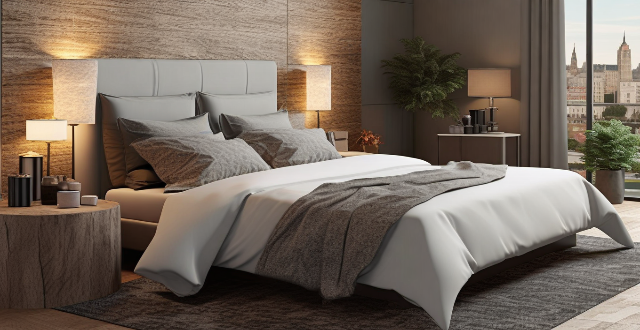
How can I protect my valuables while on vacation ?
When going on vacation, it is important to take measures to protect your valuables from theft or loss. Some tips include using a safe in your hotel room, carrying only what you need, being cautious with bags and purses, not flaunting valuables, using anti-theft bags and backpacks, keeping copies of important documents, and insuring your valuables. By following these precautions, you can help ensure that your belongings stay safe while enjoying your vacation.
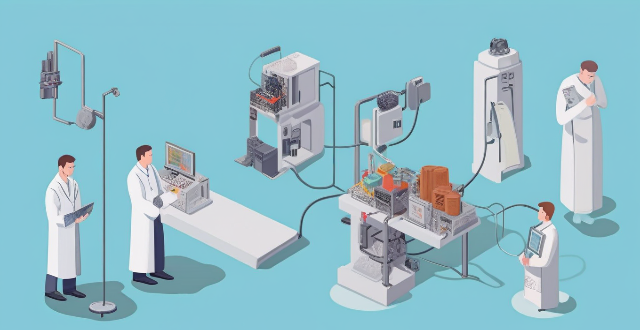
Are there any scientifically proven methods to enhance attention span ?
Attention span is crucial for productivity and success. Scientifically proven methods to enhance it include mindfulness meditation, taking breaks, getting enough sleep and exercise, cognitive training, and a balanced diet.

How do celebrities deal with paparazzi and public attention ?
Celebrities deal with paparazzi and public attention in various ways, including hiring security personnel, limiting public appearances, using disguises, maintaining privacy online, and taking legal action.

How can I treat a burn before seeking medical attention ?
Burns can be painful and potentially dangerous, especiallyBurns can be painful and potentially dangerous, especially cover a large area of the It's important to seek medical attention as soon as possible for any burn that is serious or covers a significant portion of your body. However, there are steps you can take to treat a burn before getting medical help. Here's what you should do: - Cool the Burn: Run cool (not cold) water over the burn for at least 10 minutes. Avoid putting ice directly on the burn. - Remove Heat Source: If the burn is due to contact with a hot object like a stove or iron, carefully remove the heat source without putting yourself at risk. - Remove Constricting Items: If any jewelry or clothing is near the burned area and might constrict as swelling occurs, remove it if possible without causing further injury. - Cover the Burn: After cooling the burn, gently cover it with a clean cloth or sterile dressing to protect it from infection and further injury. - Take Pain Relief: Over-the-counter pain relievers like ibuprofen or acetaminophen can help manage pain. Follow the instructions on the packaging and consult a healthcare professional if unsure. - Stay Hydrated: Drink plenty of fluids to prevent dehydration, which can occur more quickly when your skin is damaged. While the above steps can help with minor burns, it's crucial to seek medical attention for more serious burns. You should see a doctor for burns that are deeper than the top layer of skin (second-degree burns), cover an area larger than your hand, are on the face, hands, feet, groin, buttocks, or major joints, are caused by electricity, radiation, or chemicals, or show signs of infection such as increased redness, pain, or fever. Remember, these guidelines are for initial first aid and should never replace professional medical advice. Always seek medical attention for serious burns as soon as possible.

What are the best techniques for food photography ?
Food photography is an art that requires technical skills, creativity, and attention to detail. Some techniques for capturing mouthwatering images include using natural lighting, paying attention to composition, choosing a color palette, using props and styling elements, and post-processing. Tips for each technique are provided, such as shooting near windows or in shaded areas for natural lighting, using the rule of thirds for composition, selecting complementary colors for the color palette, choosing props that complement the dish without competing for attention, and adjusting exposure, contrast, and saturation during post-processing.

How does exercise improve cognitive function ?
Exercise plays a crucial role in enhancing cognitive function, including memory, attention, and problem-solving skills. It promotes brain plasticity, increases blood flow and oxygenation, reduces inflammation, and improves sleep quality. Incorporating exercise into your routine can be done through various activities such as running, swimming, or yoga. Start small and gradually increase intensity and duration, find enjoyable activities, incorporate mindful movement, make it social, set realistic goals, and consult with a professional if needed.

What is the impact of school size on the overall learning experience ?
School size affects academic performance, social interactions and extracurricular activities. Small schools offer personalized attention and strong teacher-student relationships but may lack diversity and extracurricular options. Large schools provide diverse course offerings and a wide range of extracurricular activities but may have limited personalized attention and increased competition. Choosing the right school size depends on individual needs and preferences for the best learning experience.